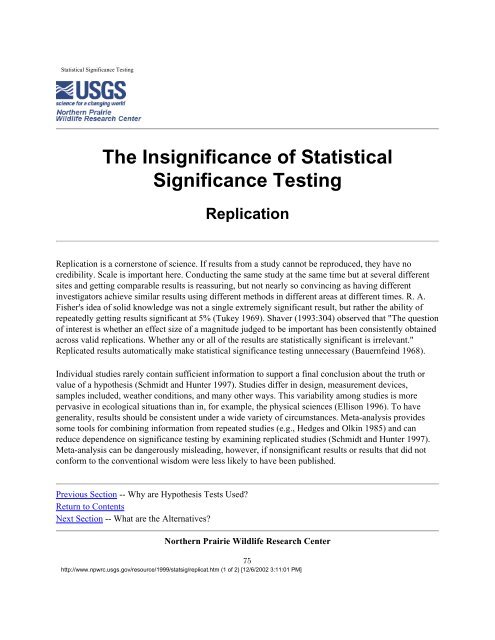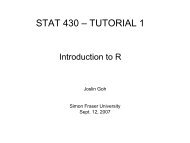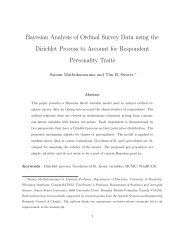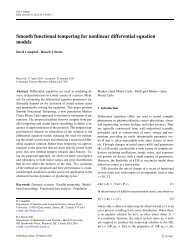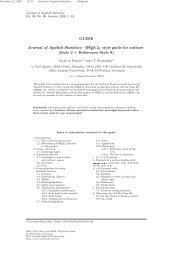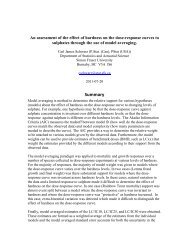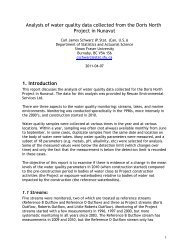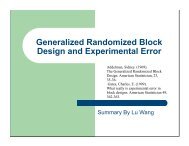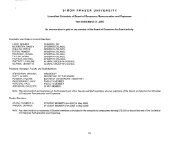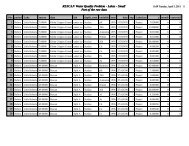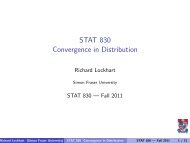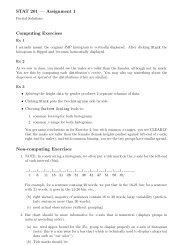Stat-403/Stat-650 : Intermediate Sampling and Experimental Design ...
Stat-403/Stat-650 : Intermediate Sampling and Experimental Design ...
Stat-403/Stat-650 : Intermediate Sampling and Experimental Design ...
Create successful ePaper yourself
Turn your PDF publications into a flip-book with our unique Google optimized e-Paper software.
<strong>Stat</strong>istical Significance TestingThe Insignificance of <strong>Stat</strong>isticalSignificance TestingReplicationReplication is a cornerstone of science. If results from a study cannot be reproduced, they have nocredibility. Scale is important here. Conducting the same study at the same time but at several differentsites <strong>and</strong> getting comparable results is reassuring, but not nearly so convincing as having differentinvestigators achieve similar results using different methods in different areas at different times. R. A.Fisher's idea of solid knowledge was not a single extremely significant result, but rather the ability ofrepeatedly getting results significant at 5% (Tukey 1969). Shaver (1993:304) observed that "The questionof interest is whether an effect size of a magnitude judged to be important has been consistently obtainedacross valid replications. Whether any or all of the results are statistically significant is irrelevant."Replicated results automatically make statistical significance testing unnecessary (Bauernfeind 1968).Individual studies rarely contain sufficient information to support a final conclusion about the truth orvalue of a hypothesis (Schmidt <strong>and</strong> Hunter 1997). Studies differ in design, measurement devices,samples included, weather conditions, <strong>and</strong> many other ways. This variability among studies is morepervasive in ecological situations than in, for example, the physical sciences (Ellison 1996). To havegenerality, results should be consistent under a wide variety of circumstances. Meta-analysis providessome tools for combining information from repeated studies (e.g., Hedges <strong>and</strong> Olkin 1985) <strong>and</strong> canreduce dependence on significance testing by examining replicated studies (Schmidt <strong>and</strong> Hunter 1997).Meta-analysis can be dangerously misleading, however, if nonsignificant results or results that did notconform to the conventional wisdom were less likely to have been published.Previous Section -- Why are Hypothesis Tests Used?Return to ContentsNext Section -- What are the Alternatives?Northern Prairie Wildlife Research Center75http://www.npwrc.usgs.gov/resource/1999/statsig/replicat.htm (1 of 2) [12/6/2002 3:11:01 PM]


